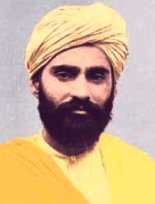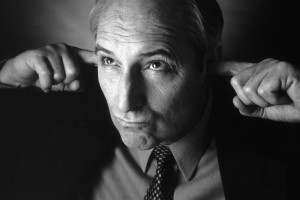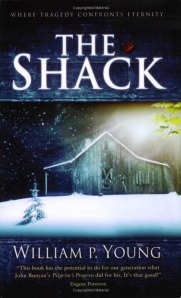During the Willow Creeks Association’s Global Leadership Summit this year Tim Keller spoke from the text of the parable of the prodigal son. He recently wrote a book titled The Prodigal God and I assume much of what he said is expounded upon in the book.
Tim mentioned that the word prodigal also incorporates the idea of reckless expenditure and because this parable involves the reckless expenditure of love by the father (i.e. God) he titled it The Prodigal God. The sub-title (aim) of the talk was to diagnose spiritual deadness and reveal the cure for it.
The parable of the prodigal son was told to Pharisees and religious folk. In Luke 10 we read that the Pharisees and scribes complained because Jesus ate with and received sinners. In the light of this Jesus told three parables, the third of which is the prodigal son.
In the parable we often miss the fact that it was not only the younger brother that was alienated from his father but so was the elder. The younger did not love the father but rather he loved the money of his father and so he asked for his share of the inheritance and goes and spends it. But the elder brother wasn’t much different and his attitude is revealed in Luke 15:29 –
“he said to the father, Behold, so many years I serve you, and I have never transgressed a command of you. And you never gave a goat to me, so that I might be merry with my friends.”
He also was after his father’s possessions though he went after it in another fashion.
At this point Tim mentioned that people try to gain salvation in two ways. The one way is like the younger brother – ignoring God and be immoral and irreligious. The other is like the elder son – be very moral and religious. But in both these ways the heart of the person is not drawn to God but rather what can be gained – salvation.
By the end of the parable it is the elder brother that is outside the house trying to save him. He is lost because of his goodness. This is what religion does. It acts morally in order to gain salvation while salvation is not gained in that manner. Religion says obey and be accepted. Elder brothers serve God to get things from God. In other words doing what they think is expected of them and s getting leverage over God. The Gospel turns it on its head – you are accepted now obey out of love towards the One who accepted you. We get a righteous record because of the Son and then obey because we want more of God himself not what can give us.
Diagnosing Spiritual Deadness
So, diagnosing spiritual deadness – it is caused by the attitude of the elder brother. At one level we believe the gospel, but persistently our hearts go back to religion – we go back to being elder brothers. Elder brothers, and here is the source of spiritual deadness, believe they’re getting leverage over God
- Elder brothers get angry when their life doesn’t go well
- When elder brothers are criticized they either attack or are demoralized
- There is no intimacy in an elder brother’s prayer life – it is about what is to be gained
- Elder brothers have a sense of superiority because of their good works. Their self image is based on right doctrine and they loath all who disagrees with them.
- They loo down on people who have or know less as lazy
- They get merciless – forget from where they themselves where saved
What to do about this spiritual deadness.
- Get to a new level of repentance.Repentance that means much more than just being sorry for wrong done and confessing it. It goes to the level of repenting for the reasons behind actions both wrong and right. Repenting from that motivation behind our good actions that seeks to gain something from God.Often the elder brother/Pharisee types are even proud of their repentance. It is one more “good” thing to do by which leverage over God can be gained.
- Break through to a new level of rejoicing.Here Tim touched on something I have never thought about before. The estate of the father was already divided in two because of the younger brother’s request. He went and spent his part of the inheritance so the only reaming part of that estate would then be the elder’s inheritance. At the return of the young brother the father commands a feast must be held and the young brother is given a ring and robe – all of it at the expense of the older brother’s part of the inheritance! Understandably the older brother is furious. Here this squanderer of his father’s possessions comes back and gets all the advantages of the household for which he has not worked and that at the expense of the older brother – scandalous!We however have an elder Brother quite unlike the one in the parable. Our elder Brother brings us back to our Father at His expense – his very life.
This moves us to humility.
This is cause for rejoicing.
Teaching values
Whenever we teach about moral values we should press through to the gospel otherwise it becomes moralism and phariseeism. The reason behind what we do, the motivation is not to gain leverage over God. It is not to somehow gain points with God and then get something in return but because we have been shown mercy and acceptance into God’s family. If we teach morality without this component we will end up with people falling back into the attitude of the elder brother.
 This question has been with me since last Friday when I read
This question has been with me since last Friday when I read 
 and…
and… 




 Tamp the coffee lightly down. Don’t tamp it down as hard as with an automatic pump machine as it might block the holder causing the water not to filter through the coffee.
Tamp the coffee lightly down. Don’t tamp it down as hard as with an automatic pump machine as it might block the holder causing the water not to filter through the coffee. Wipe the rim of the the coffee holder clean of any coffee so that it will seal properly.
Wipe the rim of the the coffee holder clean of any coffee so that it will seal properly. Using a preheated cup, pour the espresso into the cup. Fill about one third of the cup with espresso.
Using a preheated cup, pour the espresso into the cup. Fill about one third of the cup with espresso. Pour the heated and frothed milk on top of the espresso making small side to side movements towards the end of filling the cupo. This will push the froth out of the frother.
Pour the heated and frothed milk on top of the espresso making small side to side movements towards the end of filling the cupo. This will push the froth out of the frother.
 I have been part of the Learning Community of ekerk/echurch and Missionet since last year. The current LC is made up of a mixture of mainly Afrikaans speaking church leaders and some individuals interested in the church. They come from various denominations: Nederduits Gereformeerd, Herformde Gereformeerde Kerk, AGS(AFM), independent and others. Together we talk and learn what it is to be the Church in the world today. I attended a gathering of the Learning Community (LC) on 17 & 18 February hosted by Mosaiek in Johannesburg, and the many things discussed excited me but also made my head spin. There is much that was said that I do not fully understand yet, but my curiosity has been tickled and that is what the LC is all about.
I have been part of the Learning Community of ekerk/echurch and Missionet since last year. The current LC is made up of a mixture of mainly Afrikaans speaking church leaders and some individuals interested in the church. They come from various denominations: Nederduits Gereformeerd, Herformde Gereformeerde Kerk, AGS(AFM), independent and others. Together we talk and learn what it is to be the Church in the world today. I attended a gathering of the Learning Community (LC) on 17 & 18 February hosted by Mosaiek in Johannesburg, and the many things discussed excited me but also made my head spin. There is much that was said that I do not fully understand yet, but my curiosity has been tickled and that is what the LC is all about.





